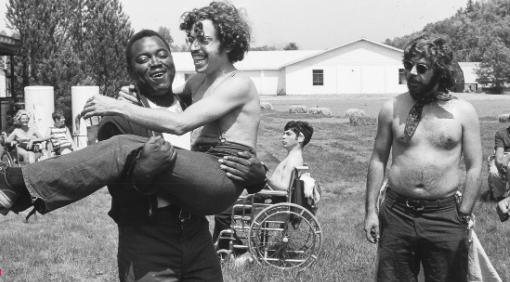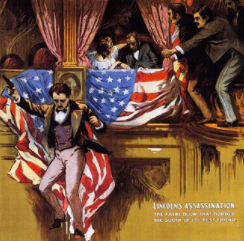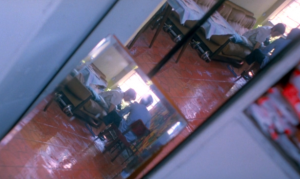“Crip Camp: A Disability Revolution” (2020): Putting the spotlight on a forgotten movement
A remarkable documentary highlighting the struggles of the historically unseen
August 26, 2020
In 1932, “Dracula” director Tod Browning released “Freaks”, a film about the people in the freakshow act of a circus stopping the abled folks from doing something bad. The film was revolutionary in portraying people who have disabilities as human beings worthy of respect and was so reviled by those in the general public that it essentially destroyed Browning’s career. “To put such creatures in a picture and before the public is UNTHINKABLE!”, people would say, and the sentiment behind the backlash colored the public’s view of the inalienable rights of people with disabilities. “Crip Camp: A Disability Revolution” is about that sentiment. It’s about that sentiment, and a couple of remarkable people’s fight to show others how backwards it is.
“Crip Camp” is a made for Netflix documentary which follows the evolution of the disability rights movement and many of its members. Each of them is connected by their shared experiences at Camp Jened, a camp for people with disabilities. A significant portion of the documentary features three people: Judy Heumann, arguably the most famous disability rights activist, James LeBrecht, a prolific sound designer with spina bifida, and Denise Sherer Jacobson, a writer with cerebral palsy. We learn more about their lives and stances on things through interviews and archival footage which was remarkably well restored. The film starts simply, keeping the scope small and focusing on Camp Jened, but gradually increases its scope until it’s impossible to deny the shocking impact that one camp had on society as a whole.
While the whole documentary is certainly fraught with emotion, as most documentaries about subjugation and civil rights are, I was blown away by how much control the filmmakers had over the emotion of each scene. The movie can go from pleasant to melancholic to revelatory quickly, but it never felt jarring. I was even pleasantly surprised by bits of humor, especially from Denise and Neil Jacobson, who are incredibly witty when telling their story. There’s a couple of particularly great moments in this film that I think make it worth watching, which I’ll try to not divulge too much on. The first one is an incredibly inspiring scene involving the Black Panthers, and the other is a harrowing scene involving the Willowbrook State School, which shook me like no documentary has since “The Act of Killing” (2012).
Unfortunately, while the information and events in this documentary are fascinating, it’s still important that I judge it as a film. The pacing of the film is great for roughly the first hour, with snappy editing that lets points get across while still keeping a lot of forward momentum. The movie never ceases to be interesting, but the second-half struggles to keep up this impressive pace, barring a few exceptions. While I wasn’t crazy about the film’s original score, I was blown away by its use of pre-existing music, which was great for setting the tone, time period, and for keeping the pace up. I was also confused by one choice made regarding subtitles for those with cerebral palsy. While I understand and even appreciate the choice to include them, the formatting was very strange, with each line said slowly fading into the frame seemingly at a random location. This likely won’t bother too many people, but since subtitles are an essential part of my enjoyment of roughly half the movies I watch, I’m very sensitive to the way they’re presented.
While the technical presentation of “Crip Camp” isn’t something to be gawked at, its message and information are important enough that I’d consider it essential viewing. It effectively weaves together personal and large scale stories, and humanizes people with disabilities in ways that largely haven’t been done in movies. This documentary is heartwarming, horrifying, and ultimately inspiring, so I implore you to go see it.









